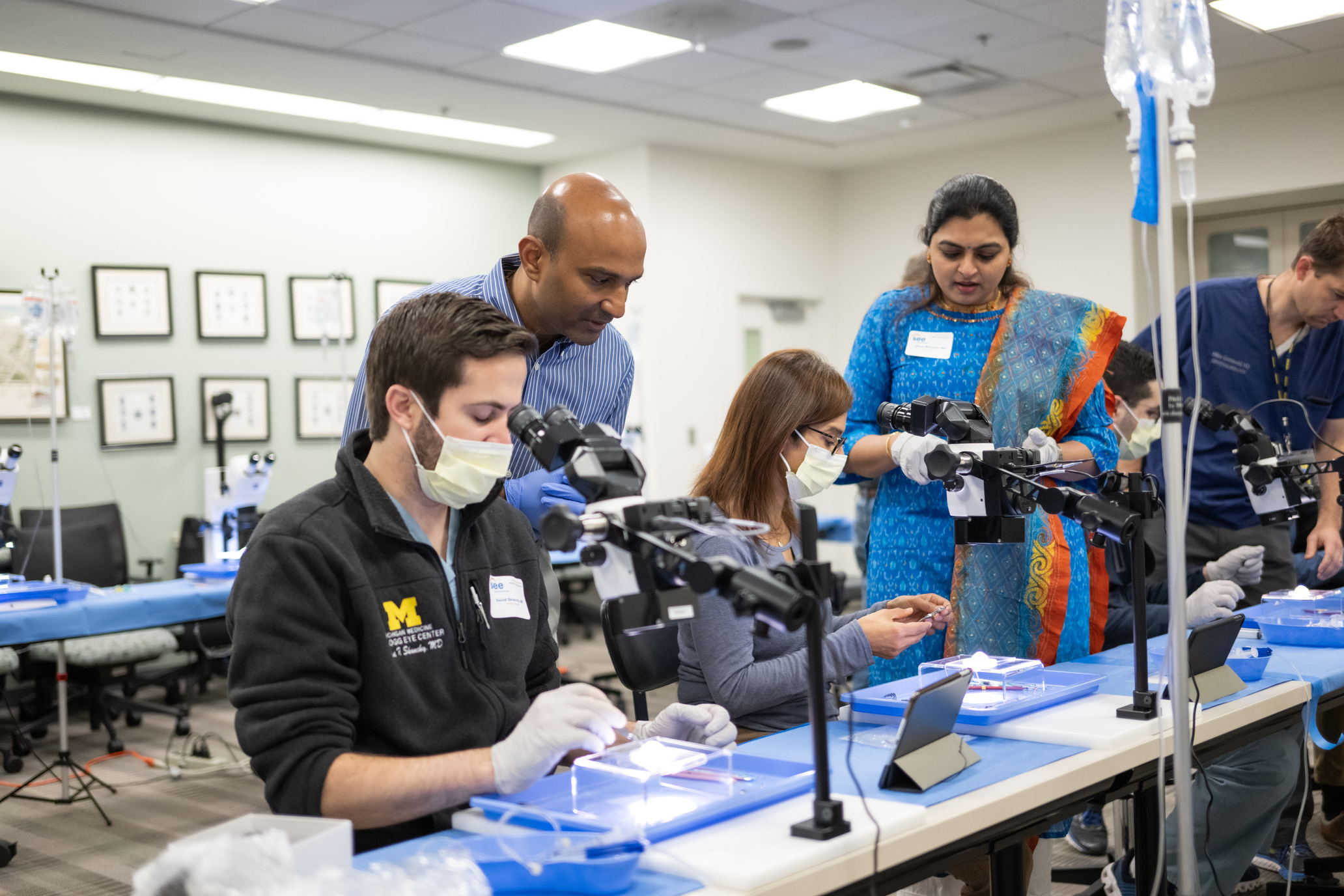
3 minute read
Meet the First Aravind Visiting Scholars
Divya Manohar, M.D., and Karthik Srinivasan, M.D., are the first of ten physicians from India’s Aravind Eye Care System joining U-M for a year under Kellogg’s D43 international research training grant. In addition to participating in a rigorous core curriculum in epidemiological research design and analysis, both will pair with mentors on clinical and epidemiological research projects tailored to their specific interests.
Dr. Manohar, a cornea specialist, is interested in conducting studies to understand how conditions like keratoconus and dry eye are impacting the eye health of Indians.
“Indians tend to develop keratoconus earlier in life than other ethnic groups,” explains Dr. Manohar. “Interestingly, that’s true whether they live in India or elsewhere. That leads us to suspect that there may be a genetic component at work, in addition to environmental factors.”
In India, as in the U.S., dry eye tends to get less clinical attention than other eye conditions. But this potentially debilitating disease seems to be on the rise in India, especially in younger people and people working in information technology. “I hope to conduct epidemiological research to test the hypothesis that heavy screen time is at least partially to blame,” says Dr. Manohar.
Dr. Manohar is collaborating with dry eye specialist Roni Shtein, M.D., M.S., cornea specialist Maria Woodward, M.D., M.S., and U-M pain researcher Daniel Clauw, M.D.
A retina specialist, Dr. Srinivasan is interested in how artificial intelligence (AI) tools like machine learning can be applied to ophthalmic diagnosis and treatment decision-making. He is working with Nambi Nallasamy, M.D., a faculty member at both Kellogg and the U-M Department of Computational Medicine and Bioinformatics, and U-M gastroenterologist Akbar Waljee, M.D., M.Sc., in each of their respective clinical disciplines. Drs. Nallasamy and Waljee are developing models of precision care that use machine learning to tailor treatment to the specifics of a patient.
“This is a transformational approach to patient care,” says Dr. Srinivasan, who has already supplemented his coursework by participating in a U-M boot camp focused on AI coding. “Machine learning has the potential to deliver individualized treatment to large populations of patients, and to do so efficiently. It’s hard to imagine a better application than the treatment of patients with complex, costly conditions like retinal disorders, in low-resource areas like India.”
For Drs. Manohar and Srinivasan, devoting a year to study in the U.S. was not an easy choice. A married couple, they left their two children in India in the care of grandparents. “Although we miss them terribly, we could never have learned so much so quickly at home,” says Dr. Srinivasan. “Overall, the program has been a blessing for us both,” adds Dr. Manohar.










